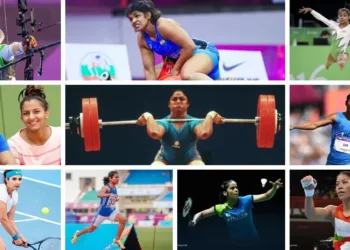In an unprecedented move that’s making headlines across India, Lovely Professional University (LPU) in Punjab has announced a complete ban on American soft drinks including Coca-Cola, Pepsi, and Sprite from its campus. This dramatic decision comes as a direct response to President Trump’s proposed 50% tariff hike on Indian goods.
Table of Contents
Punjab University Ultimatum That Shook Campus Life
AAP Rajya Sabha MP and LPU Chancellor Dr. Ashok Kumar Mittal issued an ultimatum to the United States that if the 50% tariff hike on Indian goods is not revoked by August 27, all American soft drinks and beverage companies will be banned from the campus of Lovely Professional University.
This bold stance represents more than just a campus policy change—it’s a statement of economic sovereignty that’s resonating with students and faculty alike.

Key Details of the Ban
| Aspect | Details |
|---|---|
| Effective Date | August 27, 2025 (if tariffs not revoked) |
| Banned Products | Coca-Cola, Pepsi, Sprite, all US beverages |
| Campus Affected | Lovely Professional University, Punjab |
| Reason | Response to Trump’s 50% tariff on Indian goods |
| Authority | Dr. Ashok Kumar Mittal (Chancellor & RS MP) |
Why This Ban Matters for India-US Relations
The LPU ban reflects growing sentiment across India regarding Trump’s aggressive trade policies. Dr. Ashok Mittal stands out as one of the most mature and vocal champions of India’s economic dignity on the global stage.
Universities nationwide are watching this development closely, as it could set a precedent for institutional responses to international trade disputes. The move demonstrates how educational institutions can leverage their purchasing power to make political statements.
Student and Faculty Response
The campus community has shown mixed but largely supportive reactions to this decision. Many students appreciate their university taking a strong stance on national economic interests, while others worry about limited beverage options on campus.
The ban affects not just individual consumption but also campus events, cafeterias, and student gatherings where these beverages were previously available.
Economic Impact and Broader Implications
This boycott, while symbolic, highlights the interconnected nature of global trade and local decisions. American beverage companies depend heavily on the Indian market for growth, making such institutional boycotts potentially significant when multiplied across the country.
The timing coincides with broader discussions about India’s trade relationship with the United States and the need for more balanced economic partnerships.
What Happens Next?
As the August 27 deadline approaches, all eyes are on whether the US administration will respond to such grassroots pressure. “The real test of diplomacy lies not in rhetoric but in achieving breakthroughs that benefit all sides,” noted Dr. Mittal.
The university has indicated that the ban will be immediately implemented if tariffs remain in place, with alternative beverage options already being arranged for students and staff.

The Bigger Picture
This isn’t just about soft drinks—it’s about institutional autonomy and economic nationalism in an increasingly polarized global trade environment. LPU’s decision could inspire similar actions across Indian educational institutions, potentially creating a significant economic impact on American brands.
For students and educational observers, this situation offers valuable lessons about how campus policies can reflect broader geopolitical tensions and the role universities play in national economic discourse.
Frequently Asked Questions
Q: Will other universities follow LPU’s lead in banning American products?
A: While no other universities have announced similar bans yet, the move has sparked discussions across Indian campuses. Educational institutions are closely monitoring the situation and may consider similar actions if US tariff policies continue to affect India-US trade relations.
Q: How will this affect students’ daily life on the LPU campus?
A: The university has assured students that alternative beverage options will be available, including Indian and other international brands. Campus cafeterias and vending.








